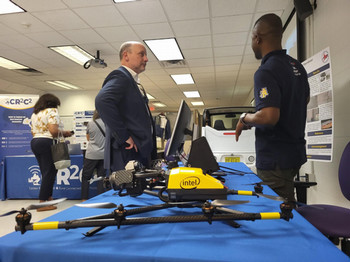North Carolina Agricultural and Technical State University has been designated the leader of the University Transportation Center of Excellence for Advanced Air Mobility and Unmanned Aircraft Systems. The initiative, recently launched by the North Carolina Department of Transportation, marks a significant investment in the future of transportation technology with an initial commitment of $2 million over two years.
Under the guidance of Dr. Abdollah Homaifar, an electrical engineering professor and the principal investigator for this project, N.C. A&T aims to advance research in critical areas such as multimodal transportation, emergency response systems, and regional air mobility.
Transforming the Industry
“We are honored to lead this groundbreaking initiative,” stated Dr. Homaifar. “Our research will not only position North Carolina at the forefront of Advanced Air Mobility and UAS advancements but also create pathways for students to develop the skills and expertise needed for careers in this transformative industry.”
The center will collaborate closely with several N.C. A&T faculty members to strengthen its focus on integrating AAM within existing transportation frameworks.
N.C. A&T’s efforts are expected to enhance connections between ground and air transportation, fostering greater efficiency and promoting robust emergency response capabilities. This initiative is poised to expedite disaster relief operations in rural areas.
“Research leadership in air mobility and transportation is crucial given the importance of access in today’s world,” commented Stephanie Luster-Teasley Pass, dean of the College of Engineering. “. Our faculty and students are dedicated to finding solutions that enhance aviation technologies, focusing on improving safety, accessibility, and autonomous transportation.”
In a recent event, Technology Day at N.C. A&T showcased innovations in vehicle technology, drawing over 1,200 participants, including state officials such as NCDOT Secretary Joey Hopkins. Attendees experienced firsthand the university’s autonomous shuttles and other cutting-edge technologies.
Expecting an Economic Impact
The anticipated economic impact of this initiative is substantial, with projections of job creation, increased investment, and enhanced partnerships between academia and industry.
Additionally, research teams from North Carolina State University and Elizabeth City State University will join forces with N.C. A&T focusing on vital areas such as operational safety, UAS deployment in emergency scenarios, and workforce development programs for future AAM operators.




